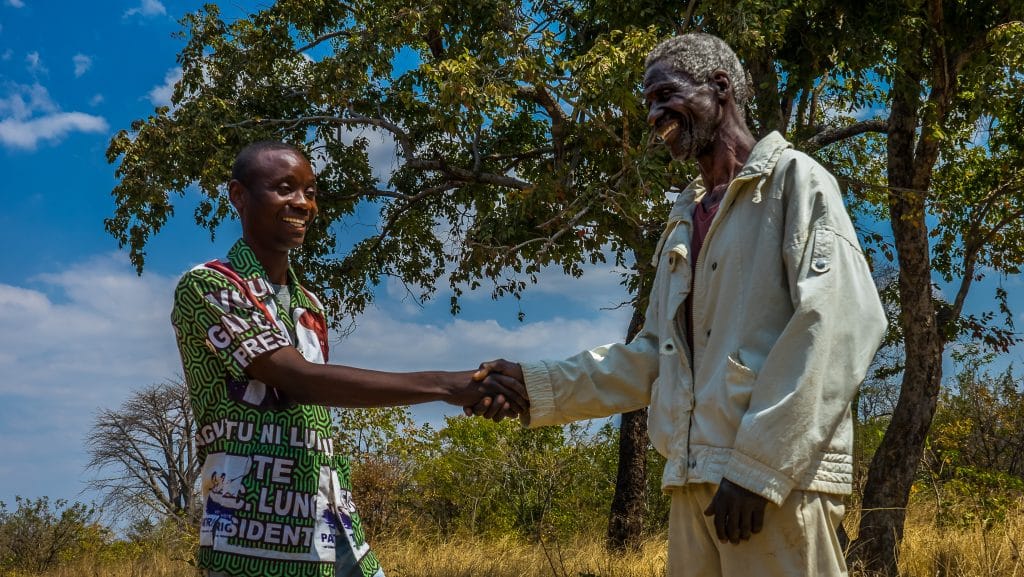The Process for Buying Land in Ghana

Categories of Land Ownership
In terms of ownership, lands in Ghana can generally be put into 4 categories: Government/State lands, Private / Individual lands, Stool lands, and Family lands. It is always very important to know the category in which the land you wish to buy belongs because that will ultimately determine the procedure for the acquisition of that land. In other words, you can’t acquire a family land in the same manner you will acquire private / individual land or government land.
The persons you have to deal with in each case are different. To ascertain the type of land it is, a search must be conducted at the Lands Commission. A “search” in this context is basically a request submitted to the Lands Commission, asking them to give you information on a certain piece of land. The Lands Commission does this at a fee. The size of the land determines how much they charge for the search. And the result will tell you who owns it; whether there is a dispute regarding ownership of the land, among other information.
Government / State Land
If the land is government land, it means that it belongs to the state and no private individual or head of family or chief can sell it to you. In this case, the proper person to contact is the Lands Officer at the Lands Commission within the region the land is situate. As already stated, the search result will tell you who owns the land.
Family Land
If it is family land, it means the land belongs to a family. The law provides that the proper person to lease/sell the land to you is the head of that family with the consent and concurrence of the principal members of the family. Note that the principal members of the family alone cannot sell the land to you without the involvement of the head of family. If principal members sell the land to you without the permission and involvement of the head of family, in law, such a transaction is invalid and can be cancelled by a court. On the other hand, where the head of family alone sells the land without the consent of the principal members of the family, such a transaction is voidable. This means that it remains valid for all intents and purposes until the principal members of the family decide to challenge the validity of that transaction in court, which the court may or may not cancel. Hence, to be on the safe side, always ensure that when you are buying family land, the head of family and the principal members agree to sell the land and sign the document before buying it.
Stool Land
Where the land is stool land, it belongs to the stool and its subjects. Again, the law provides that the proper person to sell any such land is the occupant of the stool with the consent and concurrence of the principal elders of the stool. So, a linguist cannot validly transfer stool land to you no matter how much you pay for it. Where principal elders alone sell stool land, it is invalid; where the occupant of the stool alone sells it, it is also invalid, as recent court decisions have established.
Private / Individual Lands
If the land is a privately-owned one, it simply means the land is owned by private individuals or private corporate entities like real estate companies. An extensive portion of lands in Ghana are privately owned, as families and stools have sold their lands to private individuals or entities for development. In this case, the owner of the property can sell it as he/she sees fit.
A vital point that should be noted here is that where the land is spousal property (belonging to husband and wife), section 47 of the Land Act, 2020 (Act 1036) says the consent of the other spouse is required for the sale or transfer of the property. Thus, a husband or wife cannot decide unilaterally to sell land acquired by them during the pendency of the marriage without the consent of the other spouse.
Approaches to Land Purchase in Ghana
There are two approaches to purchasing land in Ghana, namely the informal approach and the formal approach.
Informal Approach
As the name suggests, it is largely informal in nature. The buyer identifies the land he/she wants to purchase, inspects it, and if satisfied, agrees on the price with the seller orally. Once they agree on the price, and other terms like the date of final payment, the exact size of the land, etc., the seller will sign the deed document transferring ownership in the land to the buyer. The buyer may then proceed to register it at the Lands Commission to obtain a Land Title Certificate. That concludes the transaction unless the parties have agreed on some timelines within which to do certain things or within which payment will be concluded. This is essentially how the informal approach works. It is based largely on trust and usually the preferred approach to buying land in rural areas although it is also used in urban areas. This approach is quite simple but very risky because it is not always safe. A lot could go wrong. For instance, where after the seller has agreed to sell the land and the buyer has agreed to buy it, and the seller changes his mind later because maybe someone has offered more money, it becomes extremely difficult to go to court to compel the seller to honor his promise of selling to the buyer.
Formal Approach
This is always the safer and generally the more preferred approach between the two, especially in Accra where fraud is pervasive. It takes time to complete the purchase but is always worth it in the end. It is also quite technical so the assistance of a lawyer is required. I will do well to break down the salient components for easy understanding.
Contract for Sale / Sale-Purchase Agreement
In this approach, once the buyer has identified the land he wants to buy, he/she will inform his/her lawyer who will draft a contract to guide and safeguard the transaction. This contract is called a “Contract for Sale” or a “Sale-Purchase Agreement” and it contains terms on which the parties are going to transact the business. It will enable the buyer to do all the necessary due diligence to satisfy himself/herself that he/she is getting a good title from the seller. The contract contains terms covering the various searches to be conducted at the lands commission and other institutions; the duty of the seller to prove his title to the land; the purchase price; payment plan; on-site visit and inspection; the seller’s guarantee that the land has not already been sold to any other person; the identity of the seller, among other terms.
The Contract for sale/Sale-Purchase Agreement should not be confused with the deed which transfers the land to the buyer. The contract for sale is a precursor to the deed. It is an agreement between the seller and the buyer that essentially says that the buyer wants to take his time to verify certain things before buying the land so that when he/she is satisfied after the due diligence, the seller must sell to him even if somebody approaches him with a better offer. It ties the hands of the seller to sell to the buyer even if one of them dies before the sale is concluded. Either party can sue the other to enforce that contract.
Search
The starting point for the lawyer or prospective buyer is to conduct various searches at the Lands Commission, and before the searches are conducted, the lawyer or the prospective buyer will hire a licensed surveyor to draw up a site plan for the land. Why? The Lands Commission will not be able to tell the exact land in respect of which the search is to be conducted if there is no site plan. The Lands Commission will use coordinates on the site plan to identify the exact land. Oftentimes, buyers will take site plans given to them by the seller to conduct the search. It can be dangerous to conduct the search with the site plan the seller has given you. The seller’s site plan may not be related to that land you want to buy at all, although both lands may be in the same area. The search result from using the seller’s site plan may tell you that the land belongs to the seller but it may be some other land. This is why it is always prudent to draw up a fresh site plan for the search.
Another search that is conducted at the Lands Commission is one that will reveal whether the land has been mortgaged or not. Sometimes, the land is encumbered by a mortgage and the buyer is unaware. He/she buys it and a few years after the purchase, the bank shows up because the seller(mortgagor) has defaulted in payments on the mortgage and a court order has been obtained by the bank for the sale of the property. Imagine the embarrassment and stress.
One of the searches that is often overlooked but is extremely important is a search at the Collateral Registry of the Bank of Ghana. This search will show whether the property has been collateralized by the seller. Many a time, the property has been used by the seller as collateral in a loan transaction without the knowledge of the buyer. This search will bring it to light.
Also, some lands are marked for roads, markets, drains, schools and other public facilities yet to be constructed and will only be found out when the appropriate searches are conducted. You do not want to buy land and find out years later that you are on land marked for road construction and that your house is going to be demolished.
The significance of a search at the registry of the Courts in the Region in which the land is situate cannot be overemphasized. If there is any ongoing litigation over the land, the court is the best place to find this out.
Identity of the Seller
In land transactions, the identity of the seller is crucial. Beware of imposters. Many “land owners” do not actually own the land and may not even be the people they claim to be. In law, the maxim that perfectly describes this situation is “nemo dat, quod non habet”, which is loosely translated as “no person can give what he does not have.” If the imposter is sued for the money, the question is: will they have the money to refund? 90% of the time, the imposters do not have the money to refund even after obtaining judgment against them in court. So basically, Sika n’ahye, to wit: the money is lost forever. Even if they are prosecuted, they may go to jail, but the buyer may never recover his money.
The best way to verify the identity of the seller is to request a national ID card which has his/her photo on it. There have been instances where vendors have produced fake ID cards to prove their identity, only for the buyer to find out after the transaction that the ID card was fake.
When proving identity, depending on the type of ID card produced by the seller, a thorough lawyer may write to the issuing authority to verify the authenticity of the card before the transaction takes off.
Inspection and Signing of Documents

The vendor will now produce his documents for inspection and verification. Once verification is complete and everything checks out, the parties will move on to the transfer of the land. This is where you will find out the interest(ownership) the vendor has in the property and whether he can validly transfer it to you. Is it a lease, a sublease, or an assignment? For instance, a seller who has 50 years left on his lease cannot give you 99 years. I will illustrate this point thus: Mr. K bought land from the Opoku family in the year 1990 and was given a 99-year lease. In 2022, he meets Mr. P who wants to buy the land and says he will give Mr. P 90 years. This is impossible because Mr. K has 67 years left on his lease and cannot give Mr. P more than that.
However, if it is agreed that Mr. K will give Mr. P all the 67 years left on his lease, in law, it is called an assignment. But, if he decides to give him part of the 67 years, say 50 years, it is called a sublease. It is important to know the interest you are getting before you enter the transaction. Always let a lawyer see the document before you sign it since you may not understand everything contained in it.
When the inspection is concluded and both parties are satisfied, the lawyer will now draft the appropriate documents transferring the land to the buyer. The parties will then sign the documents. Based on the agreement between the parties, the transaction may end here, pending the registration of the land at the Lands Commission by the buyer to obtain a Land Title Certificate. In the transactions I have been involved in, payment to the seller is completed after the buyer has successfully registered the land without issues. We make sure this condition is one of the terms in the Contract for sale.
Registration of the Transfer Document
Registration of the document transferring an interest in the land to you is very important. Registration is a way of telling the whole world that you are the owner of the property so that when a search is conducted by someone in relation to the land at the Lands Commission, your name will appear. It is simply a notice to the entire world that you own the land.
The document must be stamped before registration. Stamping is the payment of tax on the property. After paying the tax, the Lands Commission will put a stamp on the document to indicate that the purchaser has duly paid stamp duty on the property. The tax assessment will be done by the Lands Commission and you will be told how much you have to pay as stamp duty. Without the payment of the stamp duty, the document will not be registered.
It is always advisable to register your land because of the numerous advantages it offers. Some of the advantages are the following:
- It serves as a notice to the whole world that you are the owner of the property.
- It makes it easy to resell your property because the buyer can satisfy himself/herself after a search at the lands commission that the land is indeed yours.
- If someone later lays claim to the land, you can use the search result and land title certificate as evidence of your ownership in court.
- It is easy to collateralize your property in a loan transaction.
Can a Non-Citizen Purchase Property in Ghana?
Yes, a foreigner/non-citizen can purchase property in Ghana.
Caveat: Foreigners cannot obtain a lease for more than 50 years at once. They may get 50 years or less at once. They have the option to renew their lease at the expiration of the 50 years if they so wish but never more than 50 years at a go.
Conclusion
When buying land, patience is a virtue. You should not buy land hastily and do not succumb to pressure from the seller to conclude the deal. Take your time to complete due diligence before concluding the deal. Intuition should never be overlooked when buying land, especially without a lawyer. If you have a strong feeling that something is amiss, act on it and investigate it before making payment.
It is prudent to get a lawyer involved in land transactions. Running away from paying legal fees will only cause you pain, frustration, waste of time, payment of more money to defend the property in litigation, and/or loss of the property entirely in the end.
While employing the service of a lawyer does not necessarily result in a successful purchase, the primary objective is that the buyer will have clarity on whether to go ahead with the purchase or not – and whether the buyer takes the lawyer’s advice is entirely up to him or her.
Need Assistance?
Interesting in acquiring land or property in Ghana and want to ensure a sound purchase? OneAfrica Properties Ghana provides assistance with conducting due diligence prior to the exchange of any monies. Get in touch today to get started.
Source: Harrison Kpotor, Esq.



Very helpful. Am happy coming across your article.
My question is to know how much fees are involved in the various checks at the lands commission.